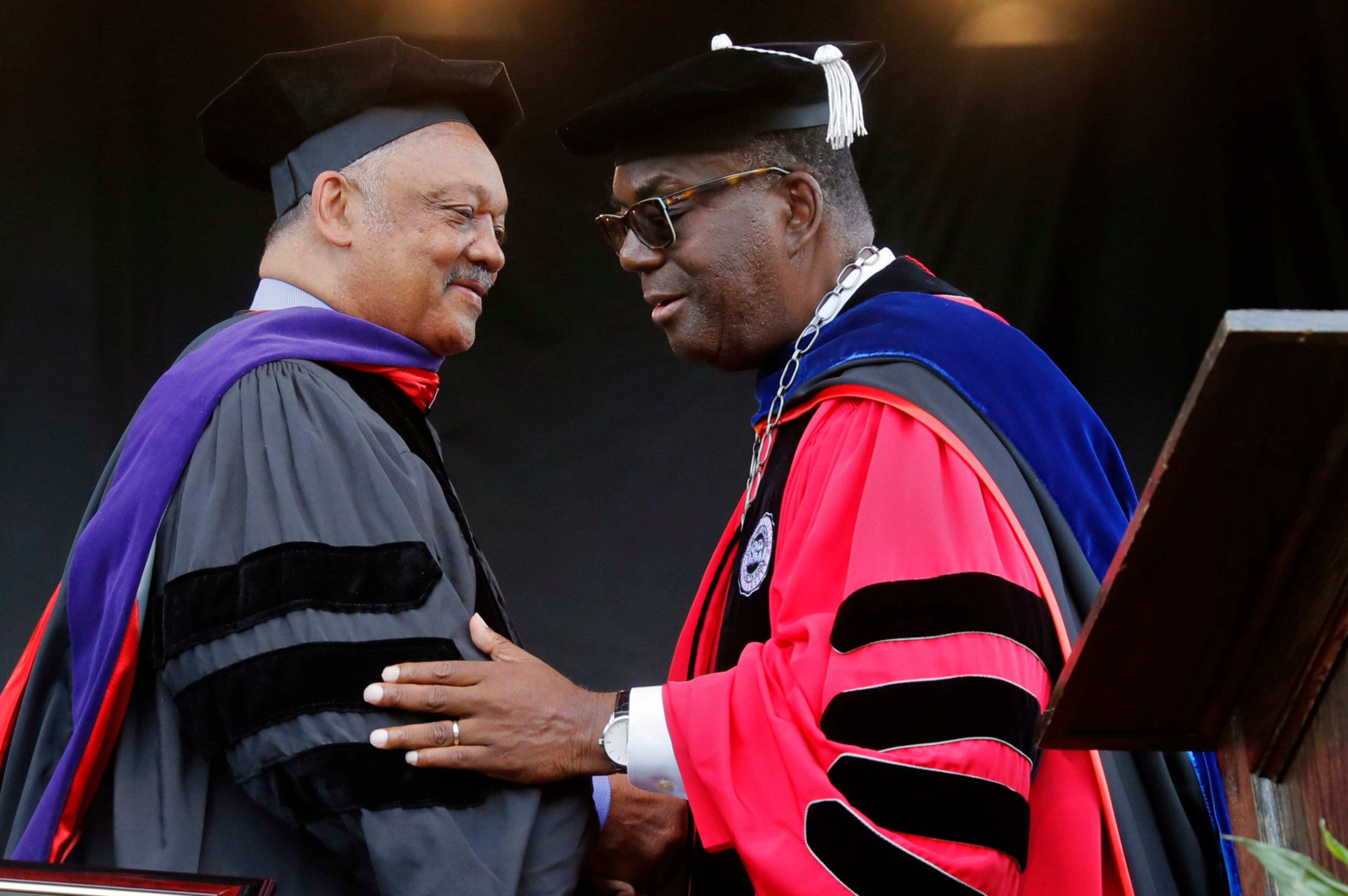Producing “powers for good in society”
SNAPSHOT
Founded in 1870, Benedict College is a private, co-educational liberal arts institution and currently has over 2,444 students enrolled in baccalaureate degree programs. Benedict College was recently ranked as one of the top baccalaureate colleges in the nation by Washington Monthly for creating social mobility among low-income students, producing cutting edge scholarship and research.
Benedict has been recognized by the National Civic Engagement Award from The Washington Center for encouraging students to give back to the community which is the heart of the College’s vision and mission. President Obama personally thanked Benedict College for its commitment to volunteerism during a nationally televised White House Town Hall Meeting held on Benedict’s campus on March 6, 2015.
MISSION
Benedict College will be a power for good in society. We will be a full opportunity college with high quality programs of teaching, research, and public service. These programs will provide our students and community with the knowledge, skills, understandings, and values required to empower them to create a better world. We seek geographic, international, and racial diversity in our student body, while continuing to facilitate the empowerment, enhancement, and full participation of African Americans in a global society and to maintain our historic affiliation with the Baptist Church.
Founded in 1870 by Rhode Island native Bathsheba Benedict, Benedict College was an 80-acre plantation when purchased as the Benedict Institute.
The long-term goal of the investor’s – Mrs. Benedict and the Baptist Home Mission -- was to educate emancipated African-Americans and produce citizens “powers for good in society."
Now, 145 years later, Benedict College has been one of the fastest growing of 39 United Negro College Fund schools.
“Clearly, with our momentum, Benedict College is in good hands for the years to come,” said Benedict College President David H. Swinton. “We are thankful for that because we feel our great challenges and opportunities still lie ahead.”
Of the 20 independent colleges in South Carolina, Benedict has one of the largest undergraduate student bodies, with students enrolled from every county in the state. More than 2,500 students currently study at the school and is distinguished by its continued commitment to facilitate the empowerment, enhancement, and full participation of African Americans in a global society.
The school’s growth is more than an expanding student enrollment. Benedict College is also involved in an ambitious building program. The beautiful park-like campus is located on the corners of Harden and Taylor Streets in Columbia, yet the campus expands over 220 acres. The campus has undergone substantial renovations to all of its historical buildings to include Antisdel Chapel, Morgan Hall, Pratt Hall, and all of its dormitories and campus buildings.
But the school’s growth is not limited to its campus. Benedict College recently built a multi-million dollar, 60-acre sports complex. The new facility includes the 11,000-seat Charlie W. Johnson football stadium and baseball and softball fields.
After a 30-year hiatus, football returned to Benedict College in 1995. And with football came its complement, the marching band.
While credited by some as a boost to male student enrollment Swinton said moving back to football was a way for students to feel a “community esprit de corps,” and to boost the “spirit and quality of the school.”
The spirit and quality have attracted their share of additional success. The average SAT scores, Honors College enrollee rate, capital giving dollars and the number of research grants awarded to Benedict College have all increased.
And with the school offering four-year, liberal arts degrees from 33 different disciplines, there are also a growing number of valedictorians and high achievers choosing Benedict College as their first choice for higher education.
Community service also defines their students. In 1997, Benedict College started the Center of Excellence for Community Development in 1997, comprised of several programs designed to help solve a distinct set of problems afflicting American society and in particular African-Americans.
Benedict College has a long history of producing high achievers. Some notable alumni include: Maj. Gen. Matthew Zimmerman and former U.S. Olympic Team coach LeRoy T. Walker.


